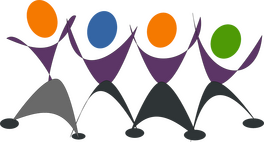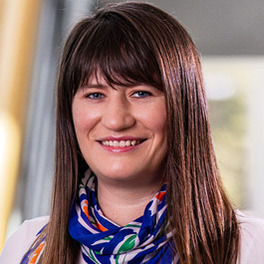Accessibility Options:
How to use this guide

This guide compiles information and resources relevant to the University of Miami community regarding Team Science. Use the tabs at the left hand side to navigate to different topics within the guide. There are resources for books, articles, websites, team agreements, trainings, and online tools.
What is Team Science?
The NIH defines it as, "a collaborative effort to address a scientific challenge that leverages the strengths and expertise of professionals, oftentimes trained in different fields." SC CTSI describes it as, "a collaborative, often interdisciplinary, approach to scientific research where people from different fields and sectors work together to address a complex scientific challenge. Team science utilizes the diverse strengths and expertise of diverse team members to achieve scientific breakthroughs and impact that are often not possible individually."
Note
Portions of this guide were created with assistance from Microsoft CoPilot.
Books/eBooks
Articles
A framework for developing team science expertise using a reflective-reflexive design method (R2DM)
The article advocates for proactive collaboration agreements among researchers to prevent conflicts over authorship, data sharing, and project direction.
This guide presents a comprehensive framework for establishing, managing, and evaluating long-term collaborative partnerships between Quantitative Science Units and Domain Science Units in academic health centers, emphasizing structured processes, mutual accountability, and sustainable research infrastructure.
How to build up big team science: a practical guide for large-scale collaborations
This paper offers a comprehensive how-to guide, covering team formation, governance, open science practices, and the unique challenges of authorship, collaborative writing, and decision-making in Big Team Science projects.
The article discusses the Science of Team Science (SciTS) and outlines the development of SciTS, its key research areas, and offers insights to inform policies and practices that enhance the effectiveness of team-based science.
Trainings
Center for Research, Excellence, and Diversity in Team Science (CREDITS)
Integrated research and training program to increase and enhance Team Scholarship (TS) and collective intelligence capacity, effectiveness, and excellence.
Interdisciplinary Team Science: Annotated Bibliography and Coaching and Training Module
Highlights key resources and offers suggestions on how to use them for self-tutorials, coaching and mentoring others, and presentations and support materials in workshops, colloquia, and short courses.
An online tool developed by Northwestern University researchers and community partners focused on educational resources for Team Science for researchers in health sciences.
A series of online videos created by the CTSC with accompanying toolkits to provide best practice strategies to address common challenges that arise when working on multidisciplinary research teams.
Workshop
Professional Organization
What is a team agreement?

A document that outlines shared expectations, roles, responsibilities, and communication standards among the research team members. It is a proactive tool to foster transparency, accountability, and mutual respect, helping to prevent misunderstandings and conflicts throughout the research process. The agreements can address authorship criteria, data management, decision-making processes, and conflict resolution strategies, supporting a culture of trust and effective collaboration.
Why create a team agreement?
Creating a team agreement allows interdisciplinary groups to set a goal with clear guidelines of how the team will operate. It is important to include in your agreement the goal of the research project, the roles and responsibilities of each team member along with authorshop and credit, communication style, and finally any issues for conflict of interest. A team agreement helps build and sustain the team over the life of the project.
Online Tools
A secure cloud-based platform for storing, sharing, and managing research files.
Enables efficient organization, sharing, and citation of scholarly sources.
Promotes collaboration by providing a centralized platform for managing research projects, sharing data, and ensuring transparency in scientific workflows.
Enhances collaboration by providing an integrated platform for communication, document sharing, and project management.
Provides a centralized communication hub for real-time discussions, file sharing, and project coordination.
Facilitates seamless collaboration for researchers by enabling real-time virtual discussions, interdisciplinary knowledge-sharing, and efficient coordination across geographically dispersed teams.
University of Miami Team Science Resources
CTSI Collaboration and Multidisciplinary Team Science
An initiative that focuses on developing strategies and building infrastructure to foster multidisciplinary collaboration and to promote the importance of team science.
A resource for researchers to enhance their skills needed to perform transdisciplinary, team-based translational research containing learning modules, toolkits, articles, videos and links.
Research Funding Opportunities
Wide variety of tools and resources to help the Miller School research community find the right funding source for research and other scholarly activities.
Transforming Silos into Synergy: Team Science in University of Miami Medicine Magazine
The article explores how cross-disciplinary groups of investigators are seeking the answers to medicine’s hardest questions.
A program that supports teams of scholars from multiple disciplines in collaborative, problem-based inquiry to address the complex challenges of society.
Contact
-

Erica Newcome
STEM and Interdisciplinary Research Librarian
305-284-4059



